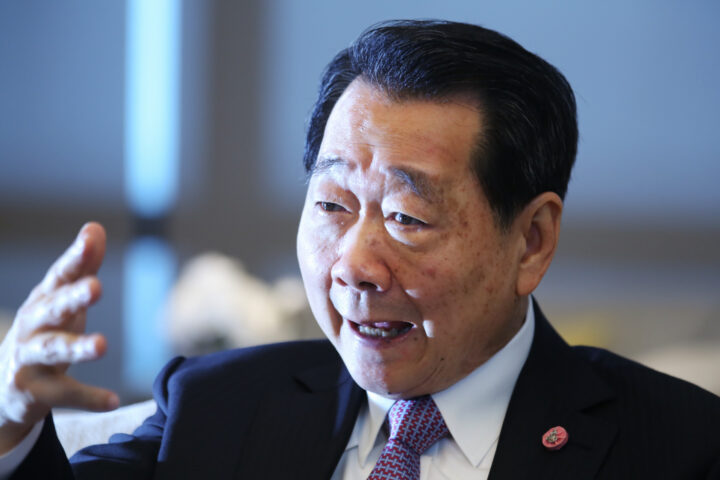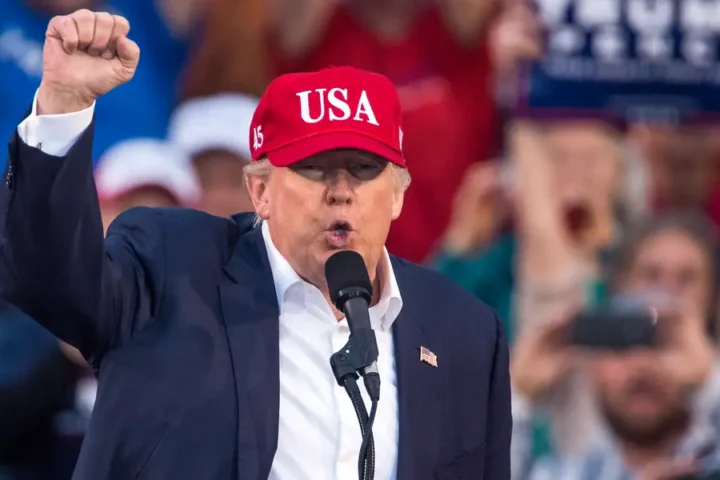When Karen Lynch took the helm as CEO of CVS Health in early 2021, she was hailed as one of the most influential women in business and health care. Her ascension to lead one of the largest health care and pharmacy chains in the U.S. came at a critical time, during the height of the COVID-19 pandemic, when CVS played a crucial role in vaccine distribution and testing. Lynch’s leadership saw CVS navigate the pandemic adeptly, with soaring revenues and growing customer trust. However, as 2024 unfolds, her sudden departure signals a rapid unraveling of her reign, leaving industry insiders questioning: What went wrong?
Karen Lynch’s appointment as CEO marked a historic moment, as she became the first woman to lead CVS in its more than 50-year history. Her deep background in health care — with roles at Aetna (which CVS acquired in 2018) and Cigna — positioned her as the perfect candidate to steer CVS into the future. Lynch wasted no time in cementing CVS as a key player in the national pandemic response, overseeing millions of vaccinations through CVS pharmacies and clinics, and solidifying its role in public health.
Under Lynch’s leadership, CVS stock surged, and the company’s revenue crossed $300 billion for the first time in 2022. She had a clear vision: transform CVS from a pharmacy chain into a full-service health care provider, offering primary care, health insurance through Aetna, and pharmacy services all under one roof. The idea was to create a seamless health care experience, dubbed “CVS HealthHUB,” where customers could not only fill prescriptions but also receive in-store treatments, manage chronic conditions, and get insurance advice.
Her focus on expanding CVS’s health care services seemed to be paying off. By 2023, CVS had acquired primary care provider Oak Street Health for $10.6 billion and Signify Health for $8 billion, furthering Lynch’s vision of an integrated, omnichannel health system.
Despite these early successes, the cracks in Lynch’s strategy began to show by mid-2023. CVS’s aggressive push into primary care and home health, while ambitious, was met with operational challenges. The integration of newly acquired companies, such as Oak Street Health and Signify Health, proved more difficult than expected. Analysts began to express concerns over the company’s ability to generate a return on these massive investments.
Moreover, CVS’s traditional pharmacy business — the backbone of the company’s revenue stream — started to feel the pressure of rising competition. Rivals like Amazon, with its online pharmacy, and Walmart were increasingly encroaching on CVS’s market share. Meanwhile, CVS’s retail locations saw foot traffic decline as consumers shifted more toward e-commerce for over-the-counter medications and everyday goods.
Lynch’s strategy of evolving CVS into a more health care-focused company came at a cost. The company began closing hundreds of underperforming stores in 2022 and 2023, a decision that angered some investors who saw the closures as a loss of valuable real estate assets and customer touchpoints. The downsizing also raised concerns about the company’s ability to maintain the level of service and accessibility that had been a hallmark of its pandemic-era success.
By 2024, the financial strain of CVS’s acquisitions and strategic realignment became more apparent. Though Lynch had positioned CVS as a health care innovator, the shift away from traditional retail and pharmacy was expensive. CVS’s primary care and home health ventures were not generating the expected returns quickly enough, leading to rising operating costs and disappointing profit margins.
In an effort to control costs, CVS announced layoffs of over 5,000 workers in mid-2024, which included a significant number of employees in its health services divisions. This move, though framed as part of a larger effort to streamline operations, further rattled investor confidence. The layoffs, combined with the slow integration of Oak Street Health and Signify Health, led to questions about Lynch’s ability to execute on her grand vision.
The stock began to slide, and CVS, once a darling of Wall Street during the pandemic, found itself facing increasing scrutiny from investors and analysts. The company’s debt load had swelled to over $75 billion, largely driven by its acquisitions. Analysts began to wonder if CVS had bitten off more than it could chew in its attempt to transform into a health care juggernaut.
Lynch’s leadership also faced scrutiny internally. As CVS closed stores and shifted its focus to health care services, employee morale took a hit. Workers at CVS pharmacies and stores reported increasing workloads and reduced hours as the company tried to cut costs. Some employees expressed dissatisfaction with what they perceived as the company’s abandonment of its traditional retail and pharmacy roots.
This internal tension came to a head in 2024, when CVS faced several labor disputes. Pharmacy technicians, who played a crucial role during the pandemic, staged walkouts at multiple locations over pay and working conditions. These disruptions not only hurt CVS’s public image but also contributed to operational inefficiencies at a time when the company was already struggling to maintain profitability.
Additionally, CVS found itself facing lawsuits related to its handling of prescription drug pricing and reimbursement rates. The regulatory landscape around drug pricing had shifted significantly since 2021, with increased government scrutiny over pharmacy benefit managers (PBMs) like CVS Caremark, which played a major role in negotiating drug prices. These legal battles further eroded investor confidence.
By the third quarter of 2024, the writing was on the wall. Despite Lynch’s innovative vision and bold strategic moves, CVS was facing a combination of operational difficulties, financial strain, and declining investor trust. Reports surfaced that the CVS board was growing increasingly uneasy with the direction the company was heading, especially as its stock price continued to lag behind competitors.
In a surprising but not entirely unexpected move, CVS announced Lynch’s resignation in October 2024. Her departure comes at a time when the company is searching for stability amid uncertainty. While Lynch’s tenure was marked by bold initiatives and ambitious growth plans, her inability to turn those plans into sustainable profitability ultimately led to her undoing.
As CVS searches for a new leader, the future of the company remains uncertain. Lynch’s vision of transforming CVS into a health care powerhouse is still in motion, but the company will need to reassess how to make that vision financially viable. Analysts suggest that CVS may need to scale back its ambitious acquisitions and refocus on improving the core pharmacy and retail business that made it a household name.
Karen Lynch’s departure serves as a cautionary tale for CEOs looking to reinvent established companies. While innovation and strategic vision are critical for long-term success, they must be balanced with careful financial management and operational execution. For now, CVS faces the challenge of regaining investor confidence and navigating an increasingly competitive health care landscape — all while trying to define its identity in a post-pandemic world.








